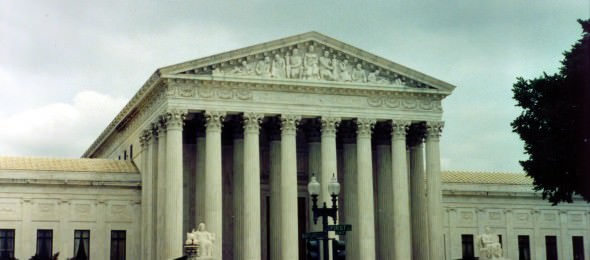This is the final installment in a three-part overview of Pepperdine University School of Law Professor Thomas Stipanowich’s newly published paper entitled “In Quest of the Arbitration Trifecta, or Closed Door Litigation?: The Delaware Arbitration Program,” Journal of Business, Entrepreneurship and the Law, Forthcoming; Pepperdine University Legal Studies Research Paper No. 2013/10. Part One provided a brief overview of the Delaware Arbitration Program. Part Two discussed a constitutional challenge that is presently ongoing before the Third Circuit Court of Appeals. Part Three will briefly summarize Professor Stipanowich’s thoughts on the Delaware Arbitration Program after a District Court judge found “that the proceedings before the Delaware Court of Chancery were in essence civil trials, and therefore subject to the requirements of the First Amendment respecting right of access by members of the public and press.”
Part Three: Thoughts on the Constitutionality of the Delaware Arbitration Program
Following a discussion regarding the arguments made on appeal to the Third Circuit by both the Delaware Coalition for Open Government and the Delaware Court of Chancery judges, Professor Stipanowich contends that a “careful assessment of the arguments and underlying evidence, along with other considerations, leads to the conclusion that the district court’s decision is well-founded and should be upheld.” In addition, Professor Stipanowich discusses in detail how the Delaware Arbitration Program juxtaposes “public and private adjudicative spheres” in an unprecedented manner. He also states that the “key distinguishing element of the Delaware Arbitration Program is the placement of proceedings before a sitting judge behind closed doors,” and describes why declaring the Program unconstitutional is “is unlikely to produce significant negative consequences” on the State of Delaware, “court-connected ADR programs,” and business in general. In fact, Professor Stipanowich believes that upholding the Program could potentially have a negative impact on all three.
Professor Stipanowich concludes his paper by asserting,
The Delaware Arbitration Program may have been designed as a way of achieving a veritable arbitration trifecta: 1) a first-rate adjudicator practiced at applying the law to complex factual scenarios, (2) efficient case management and short cycle time and (3) a proceeding cloaked in secrecy. On closer analysis, however, the Program appears to establish a proceeding that is in essence litigation behind closed doors.
By establishing sitting judges as the keystone of an adjudicative system that is privatized and presumptively confidential through the rendition of a legally binding judgment, the Delaware Arbitration Program creates an unprecedented juxtaposition of public trial and private adjudication, an anomaly that has no counterparts. The only significant element of the procedure that is not already available to litigants in public trial or, alternatively, in arbitration—is the placement of proceedings before a sitting judge behind closed doors. For these reasons, the court’s conclusion appears well-founded.
It is highly doubtful that the loss of the Delaware Arbitration Program will imperil Delaware’s position as a favorable business forum. Moreover, it will not prevent businesses from structuring effective, appropriate, and confidential arbitration procedures, nor will it undermine the ability of courts to develop and maintain a wide variety of court-connected ADR programs. If the Delaware Arbitration Program were upheld, however, the precedent might work tangibly to the detriment of the public justice system by encouraging businesses to opt out of public adjudication, with public judges rendering private decisions that are off the public roles, thereby negatively impacting our system of public precedents. It might also blur the boundaries between private binding arbitration and public trial, producing other unintended consequences.
We hope you will enjoy reading the entire paper soon. The full text of this and other scholarly articles authored by Professor Stipanowich may be downloaded from the Social Science Research Network.











